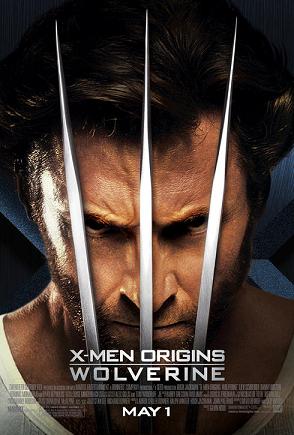It used to take decades and even centuries of cultural transmission by storytelling, theater, ballad, and a general diffusion of knowledge by processes unknown to bring myth and legend into being. That may be another way of saying that people once had brains, and then came television, Video’s killing of the Radio Star, and the genteel cultural virtues obtained through 24/7 media immersion.
People once heard, told, acted out and retold these tales, taking active roles in creating visions of life and its possibilities in imaginative ways, instead of flopping on couches with a Monster Burger in one hand and a Bucket o’ Suds in the other, passively awaiting the predetermined outcome of one steroid-based extravaganza or another. This says something disturbing about the contrast between ancient and modern civilizations and the ways the perception of reality can either be generated by humans or imprinted upon them, unless you’re the CEO of an international fast food conglomerate or a viewer engaging in a fierce wind-breaking competition during a broadcast’s inevitable male-enhancement advertisements or rain delays.
In terms of giving one’s ears and mind something more interesting to do, then, where is the contemporary equivalent of music as interesting as “Dharma For One” by Jethro Tull or Pink Floyd’s “Money“? Heard anything as refreshing and widely accessible as a “Cars” by Gary Numan or a “Walk On The Wild Side” by Lou Reed lately? And where are geniuses the likes of George Clinton and Prince, lavishing funk beyond measure upon the collective consciousness and contributing to a more harmonious cultural groove?
Consider for a moment that the Captain of the P-Funk Mothership and the Artist Formerly Known As He Is Now did not have to fill James Brown’s shiny boots or restrict their expressions to genre-specific limits, but made it up themselves and let it fly. So did the aforementioned musical luminaries, and the earth rocked on its axis between listener’s ear-holes. Therein lies the clue to the death-rattle of rock music. The verdict: Murder One with a bullet, even with Paul McCartney and Ringo Starr reuniting briefly for David Lynch’s Transcendental Meditation benefit.
This has nothing to do with the good work floating around by the likes of Crystal Method, Flyleaf, or Radiohead, for instance. Music is not dead, nor are musical ideas, popular or obscure. It’s the culture that has been laid low, with the aid of the old scapegoat “corporate greed”, true, but more so by conformity of thought regarding the disposability of music and artists. Creative writers and musicians, that is to say, real artists, do actually exist, as opposed to hacks motivated solely by “stardom” and its blandishments. These genuine artists, capable of growing and expanding their audiences for lifetimes, are essentially defenestrated by the media conglomerates that snatch them off the streets as soon as they either fail to turn a profit or bring in a profit that is smaller than that required of them.
Meanwhile, absurdly, record companies will willingly hemorrhage money in the maintenance of “stars”, throwing hundreds of millions after them with the net result of bringing in a fraction of that investment as profit. If, say, for some reason, “99 Red Balloons” had sold 27 million units of product years ago, Nena would have been packing venues for years afterward, with sales driven by high-dollar promotional hype in the expectation of the record label for lightning to strike twice. Forget Economics 101. If that sounds like an allusion to the career of Michael Jackson, how dare anyone think such a thing of such a fabulous, larger than life superstar? So now we’re back to myth and legend, and regard to proportionality in terms ancient and modern. If it is impossible to wait for a hit to come into existence, it becomes necessary to create one, regardless of the cost. That cost comes in the loss of what someone like Nena might well create with a modicum of long-term vision on the record label’s part. This implies, however, the somewhat metaphysical notion that, in art, as opposed to mere product, anything is possible, particularly with conditions conducive to creativity. Such conditions are sorely lacking in the outlined scenarios, which have deteriorated for decades now.
Such narrow thinking applies not only to struggling artists, but to established ones as well. John Kay of Steppenwolf and Boz Scaggs spring to mind as musicians having earned previous acclaim who could even now produce fine works, and likely hits, if the machinery in place made more room for respect for artists, as the American Recordings label did with the late Johnny Cash. This would mean wasting fewer resources throwing whatever a company thinks some mindless demographic will buy at the wall and hoping it will stick rather than stink, as it usually does, so that’s probably out. That does not change the fact that Cash took Grammy Awards for those recordings in the last decade of his life.
When legend and myth reflect reality, they evolve over time. When they are created in fifteen minutes and tossed aside fifteen minutes later, with that method of production being a paradigm and a fixed idea leading to permanent stagnation and atrophy, what happens is what is happening now. A music culture built on originality, defined by unpredictability and dependent on freedom, dies. Something new, something unknown, or different in that it comes from outside the understanding and control of the failed system, gradually appears to replace it.
Presently, the funeral wake is ongoing, prior to Rock’s interment, for which no plans have been made. Rock Music is survived by its stepchildren, Bombastic and Melodramatic Pop (no relation to Iggy), Max Volume of Interminable Adolescence, and Dim Nostalgia of One Hand Clapping.
Pass me that Beatle and I’ll sing you a bottle song.


COMMENTS
Please let us know if you're having issues with commenting.